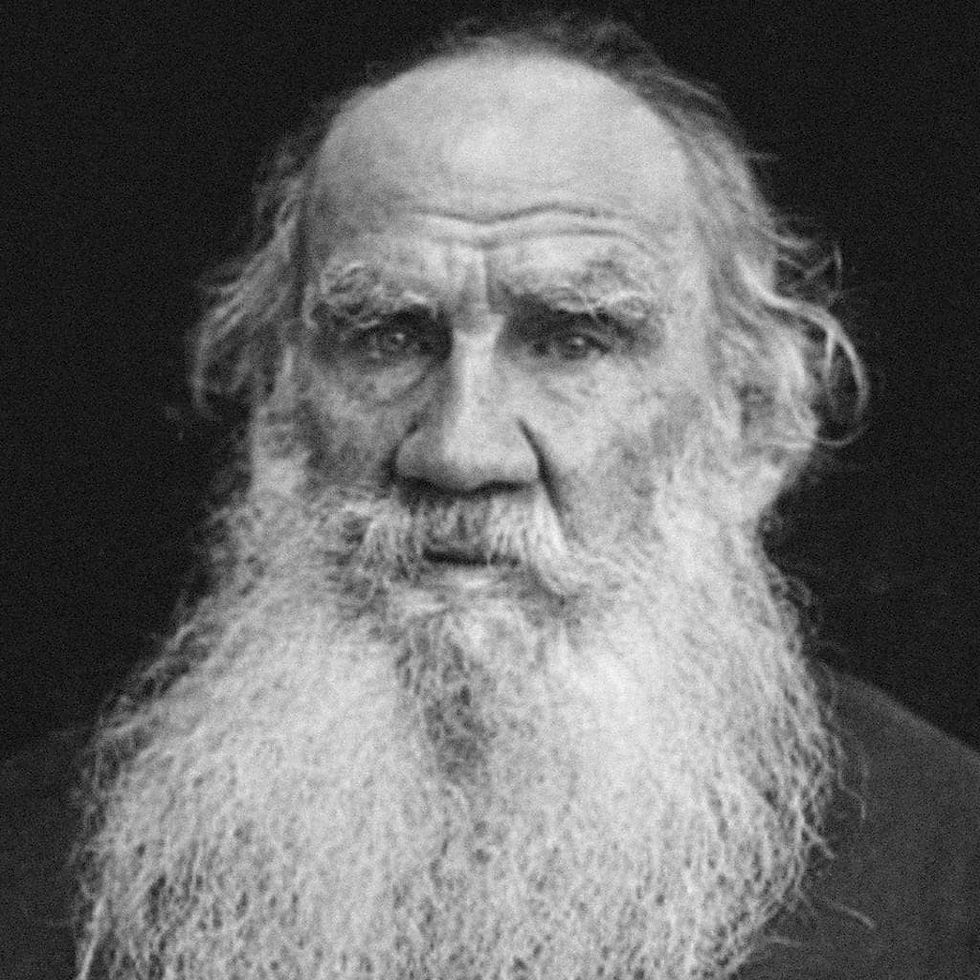Tolstoy's Existential Vacuum
- duyguergul
- Apr 1, 2021
- 5 min read
Updated: Mar 19, 2023
“It is possible to live only as long as life intoxicates us; once we are sober, we cannot help seeing that it is all a delusion, a stupid delusion! Nor is there anything funny or witty about it; it is only cruel and stupid.” This sentence was written by Tolstoy on page twenty-seventeen of his book, A Confession.
A Confession is a book, Tolstoy started writing in 1879 and completed in 1882. At the age of fifty-one the author of War and Peace (1896) and Anna Karenina (1877) came to believe that he had accomplished nothing in life and that his life was meaningless. In Viktor Frankl's words, who is an Austrian neurologist, holocaust survivor and the founder of logotherapy, he was drawn into the existential vacuum. And the bad thing was the deeper his thoughts, the deeper was his existential vacuum.
In his book, A Confession, Tolstoy starts with how his faith lost its ability to persuade him that life has a meaning. And he describes this feeling in his sentences as; “once you lost that relation with faith, there is no way back”. At this point his writing becomes the meaning of his life for a long time. His satisfaction with writing and praise he received from the literary circle made him feel he was having a meaningful life. According to my subjective interpretation; this was an irrational feeling which made him feel like that. The moment when his intellect took over his world of emotions, he hit the wall of reality that an outsider success could never be a constant source of happiness. This was the time his family; his wife and children became his meaning of and reason for life. But at some point, he was faced and unable to cope with the thought that everything has an end. He couldn’t find a valid and satisfying answer to the following insurmountable question; what can be a meaningful reason for any action in this life if everything will end and will be gone soon, not only for him but also his wife and children sleeping in the next room? What was the meaning of trying to make himself or his family happy if whatever received or experienced will not exist after some time? With this question he lost his connection with life and he had no enthusiasm to do anything neither for him nor for his family. It became impossible for him to keep living and found himself in a very certain suicidal idea. This became when he lost all his intoxicating substances one by one; faith, success and family. And he confirmed his own hypothesis in the beginning of the book; It was possible to live only as long as life intoxicated him; once he was sober, he couldn’t help seeing that it was all a delusion.
Viktor Frankl in his book, Man’s Search for Meaning, explains the meaning of life in an unprecedented way, that life hasn’t got one spectacular meaning to be discovered but once we identify a purpose in life, we may have meaningful actions in every situation and condition. He suggests rather than looking for a meaning for life it is meaningful to act in a way that serves our purpose and that makes a meaningful life. Meaning is not something to find out but something to be built up by us.
Viktor Frankl’s approach seems to be more practical and more active since it is focused on actions rather than waiting for an answer to come. Moreover, in his book Frankl repeatedly shows validity of his hypothesis with real-life examples through his experiences as a prisoner in Nazi concentration camps during World War II. One can feel a meaningful life while acting in a way that serves his or her purpose for life. But I am sure that Tolstoy would probably want to ask him; how can one know that a purpose has any meaning or how can one define something as meaningful, if only Viktor Frankl was not five years old on the time Tolstoy passed away. If he still would, a five-year old boy Viktor would probably answer; one can know a purpose has a meaning as long as it brings enough chocolate. So, acting in a way that serves bringing more chocolate would be a very precise and clear way of living a meaningful life. That could be an answer for some of the questions of Tolstoy however the remaining unanswered questions would still be a pain in the neck for the great Author, especially if he didn’t like chocolate. And if they were peers, Tolstoy might have accused Frankl for being intoxicated by his “logotherapy” and Frankl’s answer which is hard to imagine, might have been a topic of his new book.
Eric Fromm, a German social psychologist, who was ten years old when Tolstoy passed away interprets on happiness and meaning of life from the perspective of having and being. He suggests that modern society especially the consuming environment dictates us to have things more than being something. We are programmed to own things instead of enjoying thing’s being and be with things. Eric Fromm finds it almost sick to have this instinct of owning and to have this idea of being happy or meaningful as long as we own things, we somehow believe that we need to own. A ten years old Eric would definitely give more satisfactory answers than a five years old Viktor but still Tolstoy would ask what is the meaning of being happy since whatever experienced will not exist after some time? The ten years old Eric may probably have answered; but we exist now. Tolstoy's answer is hard to guess but to dream a smile on that sullen face is irresistible.
Great minds have great questions and they don’t always think alike. Tolstoy found himself in the idea of suicide when he lost all his intoxicating substances; faith, success and family. That confirmed his hypothesis; “It is possible to live only as long as life intoxicates us; once we are sober, we cannot help seeing that it is all a delusion.” That was the first confirmation. There was a second one since he didn’t have a suicide. Tolstoy came to the place where he first began. In his further steps he found a meaning in searching for God. In the last pages of the book, A Confession, he declares that he became faithful again and that gave him the will to live again. Tolstoy was fifty-four years old when he finished writing the book, A Confession. He was eighty-two when he passed away, he left his family days before that. The last thoughts in his mind on faith or the meaning of life are gone with him. Or with his words; they don’t exist anymore.



Comments